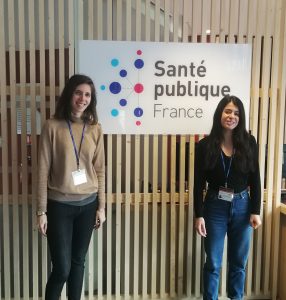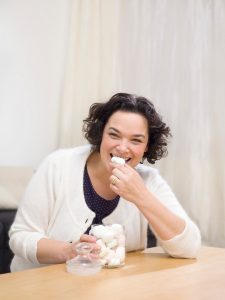
It has been just over a year now that I started my PhD within the Edulia project and last month I finished my last secondment. For 9 months I was working at the offices of Santé publique France (SPF) in Saint Maurice, close to Paris. There I was welcomed by the unit of Nutrition and…

ESR3, Julia Sick at the University of Florence (Department of Agriculture, Food, Environment and Forestry) recently published her first paper “Children’s Self-Reported Reasons for Accepting and Rejecting foods” in the journal “Nutrients”. The paper is based on her Master Thesis which was conducted as a part of Taste for life (http://www.smagforlivet.dk/) and supervised by Annemarie Olsen…

First of September, back to school! Well, this year I could share children’s excitement to go back to school as I was about to start my secondment at the Research center of Institut Paul Bocuse in Ecully (France) in September 2019. A new environment, a new team, and a new research topic, exhausting but definitely…

In my co-creation experiment where we wanted to develop a healthy snack idea with 10-12-year-old children I asked them to take photos of the snacks they usually eat. I learned that a normal snack has to be called “mellommåltid” instead of “snack” because the term “snack” implies unhealthiness in Norwegian. Another thing particular to Norway…

My first experiment had the aim to develop healthy snack ideas with 10-12-year-old children in a co-creation approach. For this we invited children to our focus group facilities at Nofima which must have been interesting but also somewhat intimidating for them. So, one challenge was to provide a framework to immerse them in the activities…

In August 2019, ESR8 Andreia had the opportunity to visit UdelaR (Universidad de la República) in Uruguay, aiming to collect data for the research project: “Factors influencing new parent’s healthy eating behaviours”. Now she is back to Aarhus University – Denmark to analyze the data obtained from 3 countries: Denmark, France and Uruguay. The data…

Did you know that drinking water can improve children’s attention and memory? In this way, drinking water may help children to perform better at school. Schools are a good setting to develop and promote healthy habits, including drinking water. What are effective ways for schools to encourage youth to drink more water? Beverage consumption among…

Several factors related to the period following childbirth (post-partum) may increase the consumption of sweets by new parents. This is what ESR8-Andreia, has found from in-depth interviews with Danish parents for her project: “Factors influencing new parent’s healthy eating behaviours” Parents in Denmark have mentioned to eat more sweets during the post-partum mainly due to…

The relationship young children have with food appears to be as turbulent as a Boeing 737 flight; with some children showing the smoothest of take offs and navigation, whilst others endure several stalls and emergency landings. The vast difference in children’s eating behavior when they commence their exploration of solid foods makes the subject immensely…

How are emotions and food related? On the one hand, emotions and moods can influence what food we want to eat and how much of it, and on the other hand, the food we consume can provoke emotions in us. In the first case, the relationship has been widely researched in food-related disorders like obesity…










